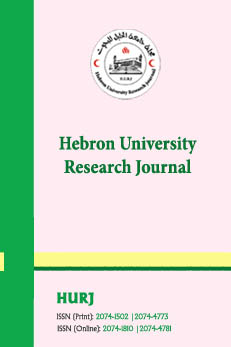Hebron University Research Journal (HURJ): B- (Humanities)
Geographical variables and their impact on the fourth generation wars for the period 2003-2017 (Iraq is a case study)
- Author: Mustafa Abd Al-Rasool Ahmed
- ISBN: 2074-4781
- DOI: https://doi.org/10.60138/5320120258
- N°: 0
- Year: 2025
-
Link:
 Geographical variables and their impact on the fourth generation wars for the period 2003-2017 (Iraq is a case study)
Geographical variables and their impact on the fourth generation wars for the period 2003-2017 (Iraq is a case study)
Review
Abstract:
The study aims to shed light on the impact of natural and human geographic variables in the Iraq war on terrorist organizations, especially ISIS, which is an unconventional war that varied in its strategies, combining the traditional and advanced method with the pursuit of an international strategy to combat terrorism. Therefore, the study problem came through the question: Do geographical variables have an impact in the fourth-generation wars in Iraq for the period (2003-2017)? In particular, after the spread of the phenomenon of terrorism and in determining the method and type of war used to confront it. In order to fulfill the requirements of the study scientifically, the researcher used more than one method to determine the evolution of generations of wars, starting from the traditional to the fourth. The researcher also used descriptive analytical method for detailed knowledge of the impact of geographical variables in the war on terrorism and the tools for this type of wars. The results indicated that the geographical variables contributed to the fourth generation wars in Iraq and the spread of terrorism and its ideology. The natural factor is that Iraq's strategic location and resources made it the focus of ambition for many invaders throughout history, including extremist organizations to control it. As for the unbalanced political, security and economic variables, they contributed to the growth of the phenomenon of terrorism and its control over an area of 15000 km2, at a rate of 35% of the area of Iraq. Thus, the study recommends rebuilding military and security capabilities with the latest technologies, fighting extremism and terrorist ideology and drying up its sources internationally.





